Do raccoons kill rabbits? Yes, but luckily it is rare. Raccoons are not natural predators of rabbits, but they will attack and kill them if they have no other choice. A raccoon will not try to eat a rabbit unless it is hungry and has a scarcity of food.
Raccoons can kill and eat rabbits if they find a chance to kill them. They are known as opportunistic feeders that can feed upon anything easily available.
However, raccoons prefer to kill animals that are easy to chase and hunt. The fastest raccoon can run at about 15 mph while on the other hand, a slow rabbit can easily run at a speed of 27 mph.
How And Why Raccoons Are Dangerous To Rabbits?
When animals interact with each other for their survival, some animals become the worst enemies who kill and eat each other, while others choose to be friends and live together.
If we talk about Raccoons and rabbits, they are mortal enemies. Despite how cute bunnies and raccoons are; they can have a serious fight together!
The reason for this is that their bodies are very different. When they fight, the bunny has a much smaller chance of winning than the raccoon.
Raccoons are predators, naturally blessed with sharp nails and teeth that can cause serious damage to the soft body of a rabbit. Raccoon’s sharp claws and teeth can easily tear through a rabbit’s skin and fur.
In case, the raccoon loses a fight, still, a rabbit may be left with serious injuries that may lead to serious illness or death of an injured rabbit.
Raccoons are considered dangerous to rabbits not only because they kill them but also because they can transmit serious diseases to their prey.
Raccoons are the natural carriers of diseases like raccoon roundworm, leptospirosis, and rabies. Their scratch or bite may easily transfer these diseases to their prey minimizing its chances of survival despite its luckiness to escape during the fight.
Do Raccoons Eat Rabbits?
Yes, raccoons eat rabbits, as shown in the video, a raccoon has caught and killed a rabbit. Being an omnivore, Raccoon has a large variety of food to consume. It can eat both plants and animals; from nuts, fruits, and eggs to insects and small mammals, they may eat whatever is available.
But under unfavorable conditions, when food is scarce, Raccoons don’t mind hunting and eating a rabbit to satisfy their hunger. Omnivores consume meat as well so rabbit meat is not a bad choice for raccoons when there is a need.
Related Articles
What Do Raccoons Do To Baby Rabbits?
In comparison to adult rabbits, raccoons opt to hunt and eat baby rabbits that are alone and their mothers are not near to defend them.
Raccoons love to eat baby bunnies because they can’t run or defend themselves like adults and are easy to grab.
At What Time Do Raccoons Attack Rabbits?
Raccoons are nocturnal predators that are more active at night while rabbits are diurnal and sleep at night.
This contrast between these two animals helps raccoons to hunt and eat rabbits while they are sleeping so they can’t fight back or run easily. Otherwise, during the daytime, when rabbits are active, hunting them is not an easy task.
One of the most difficult aspects of catching a rabbit is that the rabbit will never stop running from a predator. Even if it gets tired, it won’t give up and simply hop away
Raccoons don’t go out of their way to chase bunnies. Raccoons know very well that rabbits are difficult to catch, therefore they don’t waste time running after them.
Instead, they carefully observe and follow in their footsteps, moving as quietly as possible to come closer to their target in a precise position for an attack.
They mostly attack rabbits when they are least attentive, especially when they are sleeping, feeding, eating, or playing.
Raccoons mostly try to attack rabbits at such times, and in most cases, they get successful in hunting down and killing their prey.
Can Rabbits Protect Themselves?
Rabbits are cute, intelligent, and friendly prey animals that do not like to initiate a fight. Nature has blessed them with several defensive characteristics to help them avoid being preyed on easily. They protect them from raccoons because;
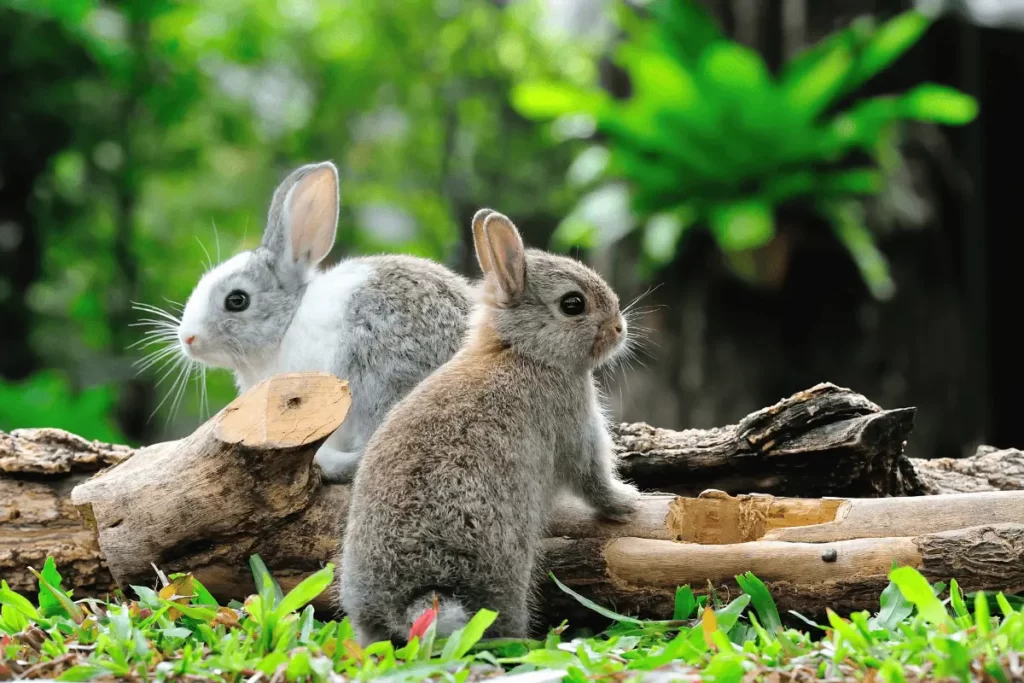
They Are Good Runners
Rabbits are known as fast runners. They use their capability to run fast and hide quickly as their main defense system. These fast runners are not an easy catch for their predators as they love giving their predators a tough time by playing “Catch me if you can”.
Good Sense of Smell, Sight, and Hearing
Rabbits also possess a strong sense of smell, sight, and hearing that helps a rabbit to sense any nearby danger and to plan a defense strategy accordingly.
Rabbits are blessed with almost 360-degree vision so they can easily detect the presence of their predator regardless of its direction.
Strong Hind Limbs
Not only do strong hind legs help Rabbits maintain a good speed while running, but Rabbits also use them in their defense.
During an encounter with a predator, rabbits use their legs to kick their enemy so they may get threatened and run away. Small-sized animals can easily get injured because of these strong kicks.
Sharp Teeth and Claws
Unluckily, if a rabbit doesn’t get a chance to escape and has an encounter with its predator like a raccoon, it won’t give up easily. Rabbits can put up a good fight and can injure their predators by using their sharp teeth and claws.
A rabbit can’t kill its predator but can give him enough wounds that it won’t be able to chase a rabbit easily. This strategy may give the rabbit enough time to escape.
How to Protect Rabbits from Raccoons?
If you own a rabbit, the last thing on your mind is the thought of a raccoon eating it. Unfortunately, you can’t stop raccoons from eating away rabbits because it is a natural process of survival. But you can protect your rabbits by taking some necessary precautions.
For your ease, we have discussed below some ideas so you may get rid of raccoons without harming them.
Keep your pet indoors
For ages, it’s been a debate about whether pets like rabbits stay happy and healthy while living indoors.
Research has shown that rabbits may live happily indoors if they are provided with safe and comfortable accommodations.
They are prey animals so it is beneficial for them to stay inside that would minimize the chances for them to get preyed upon easily.
Remove all food sources including trash cans
Raccoons are scavengers that always search for ready-made food. If they don’t get access to any edibles on your premises, they might get discouraged and most probably would stop visiting your place.
At night, making a habit of cleaning all the garbage, and your pet’s leftover food, and especially covering your trash cans properly with locking lids may remind the visitor raccoons that they are at the wrong place and they should move on.
Build a secure predator-proof rabbit hutch
If you can’t keep your pet indoors or want your pet to stay outdoors and enjoy its natural habitat, then better to build a predator-proof rabbit hutch so your pet may stay safe outside.
Choose a hutch made of material that may not easily get torn by predators. Strong wiring should be there all over your hutch to give it additional support.
An ideal hutch may have properly placed complicated locks, latches, and bolts on it so that intelligent predators like raccoons won’t be able to open and get into the hutch easily. Raccoons are smart enough to open simple latches and locks.
Placement of a hutch at an ideal place and height is also a key aspect of securing your pet from predators.
Use of repellents
Raccoons have a strong sense of smell so they can easily sense and differentiate between smells they like and dislike. The strong scents they dislike act as a repellent for them.
You can use this trait to keep them away from your pet’s surroundings. Some of the good repellents you can use for raccoons are:
- Onion and pepper spray releases a pungent smell that irritates raccoons a lot.
- The use of Epsom salt may bring dual benefits for you. In addition to keeping raccoons away, it may also work as a very effective natural fertilizer for your garden.
- Hot pepper, peppermint essential oil, garlic juice, cinnamon, and ground black pepper are also used frequently to keep the surroundings and pets safe from these masked bandit creatures.
How To Keep Raccoons Away From Baby Rabbits?
- Establish a Secure Habitat: Construct a sturdy and secure outdoor cabinet for your baby rabbits. The construction material, such as a thick, chew-proof wire or solid wood, should be robust to deter raccoons.
- Elevate the Hutch: You add an additional layer of security against raccoon invasions by elevating the rabbit enclosure off the ground.
- Implement Lock Mechanisms: Raccoons are dexterous creatures; hence, simple latch systems will not deter them. Consider using complex locking mechanisms that require higher cognitive processing to open.
- Install Motion-Activated Lights: Raccoons are nocturnal and averse to bright light. Install a motion-activated light system around the rabbit’s dwelling to startle and discourage them.
- Use Natural Repellents: Employ aromatic deterrents like hot pepper spray or ammonia, which raccoons dislike. Apply these around the perimeter of your property, ensuring it does not harm the rabbits.
- Create Noise Barriers: Devices producing unexpected or loud noises can serve as effective raccoon deterrents. Wind chimes, ultrasonic repellers, or even a radio tuned to a talk station can help.
- Secure Garbage Bins: Raccoons are opportunistic eaters and are attracted to trash. Secure your bins with a robust locking system to discourage them from visiting.
- Employ a Watchdog: A trained pet dog can deter raccoons due to their instinctual fear of larger predators.
- Professional Assistance: If all else fails, consider hiring a wildlife control service. They can humanely trap and relocate raccoons, reducing the threat to your rabbits.
What Animal Kills Rabbits At Night Other Than Raccoons?
Aside from raccoons, several other creatures pose threats to rabbits at night, including:
Red Fox (Vulpes vulpes)
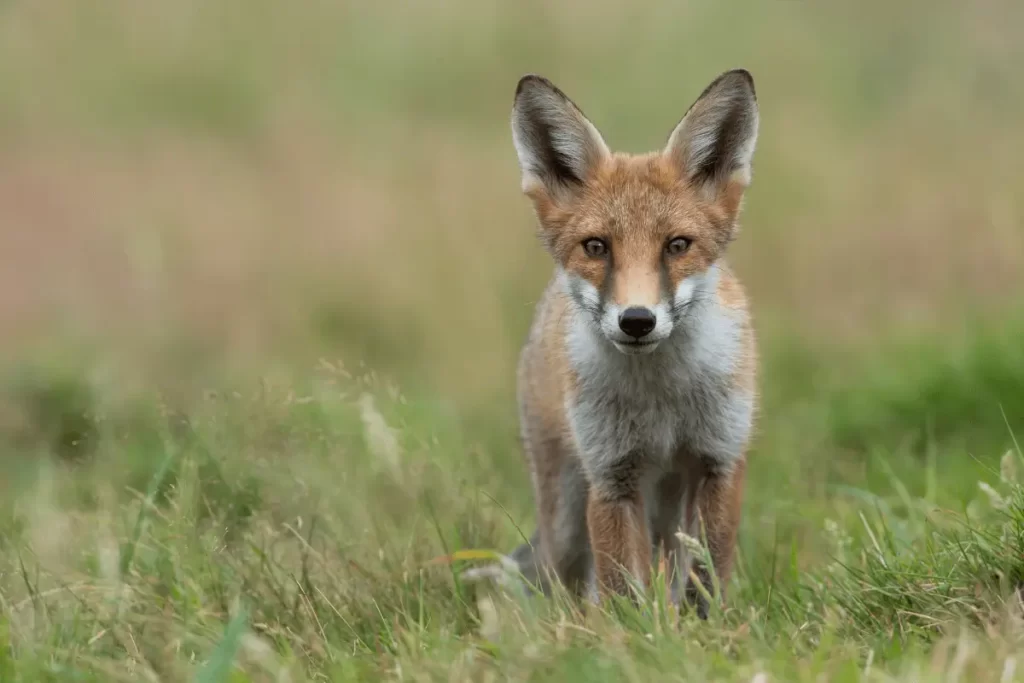
The clever Red Fox sneaks out to hunt as night covers the land. It has excellent hearing and a highly developed sense of smell, making it capable of picking up on even the most subtle sounds and smells.
There is a lot of evidence that it likes rabbits. It sneaks up on its prey by moving quickly and quietly. When the time is right, it starts a wild chase. When the fox kills its prey, the body parts are often cut cleanly, which shows how cruel it is.
Domestic Dog (Canis lupus familiaris)
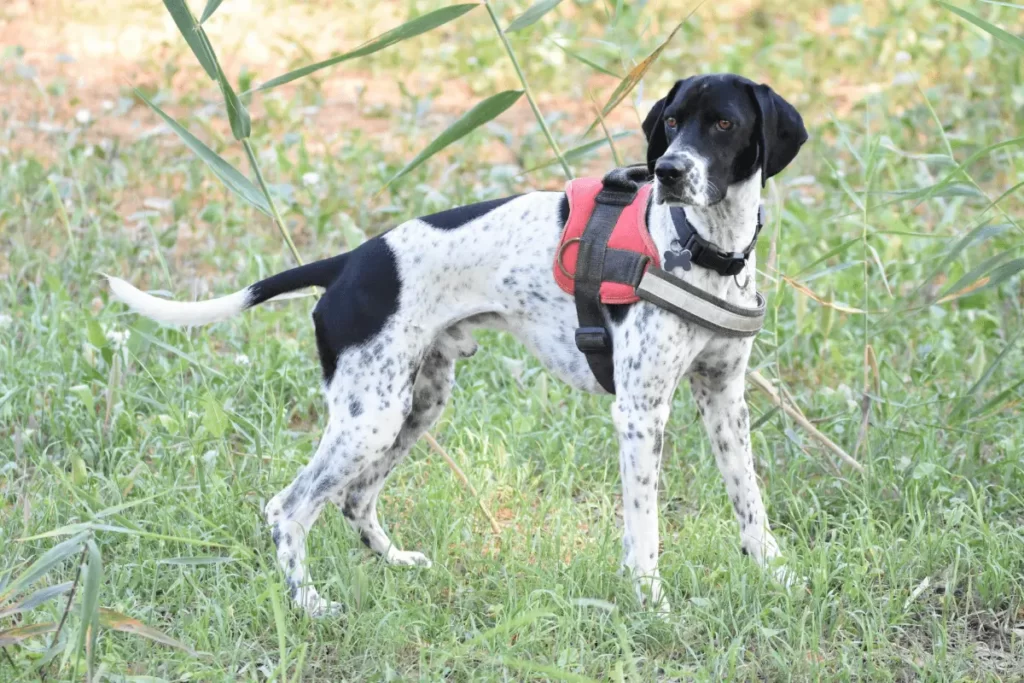
In the quiet of the night, a domestic dog can become a danger to bunnies they don’t expect. While most dogs are friendly and tame, several breeds still have strong predatory tendencies from their origins in the wild. Free dogs can attack rabbits with a passion that challenges their usual calm. Damaged fur and smudged paw prints are common nighttime reminders of their activities.
Great Horned Owl (Bubo virginianus)
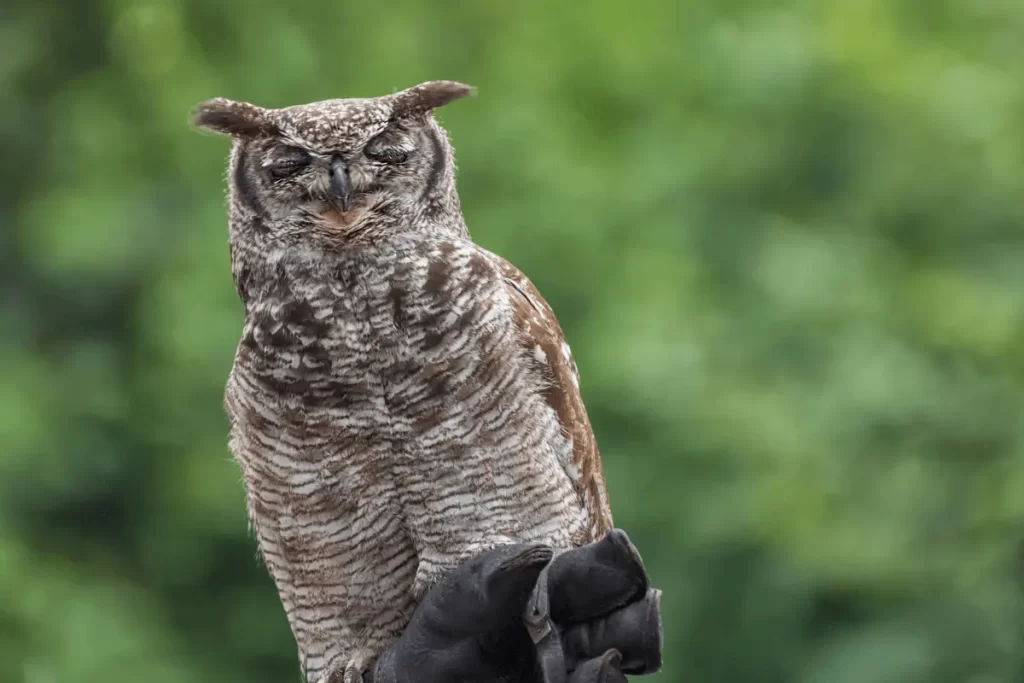
As night falls, the Great Horned Owl takes to the pitch-black sky. Its quiet wings allow it to fly over people on the ground without being seen. These powerful raptors are also expert hunters. Rabbits are a common staple in their diet. Their deadly claws are strong enough to crush the bones of their prey, making them dangerous enemies for even the most careful rabbits.
Lynx rufus (often known as the bobcat)
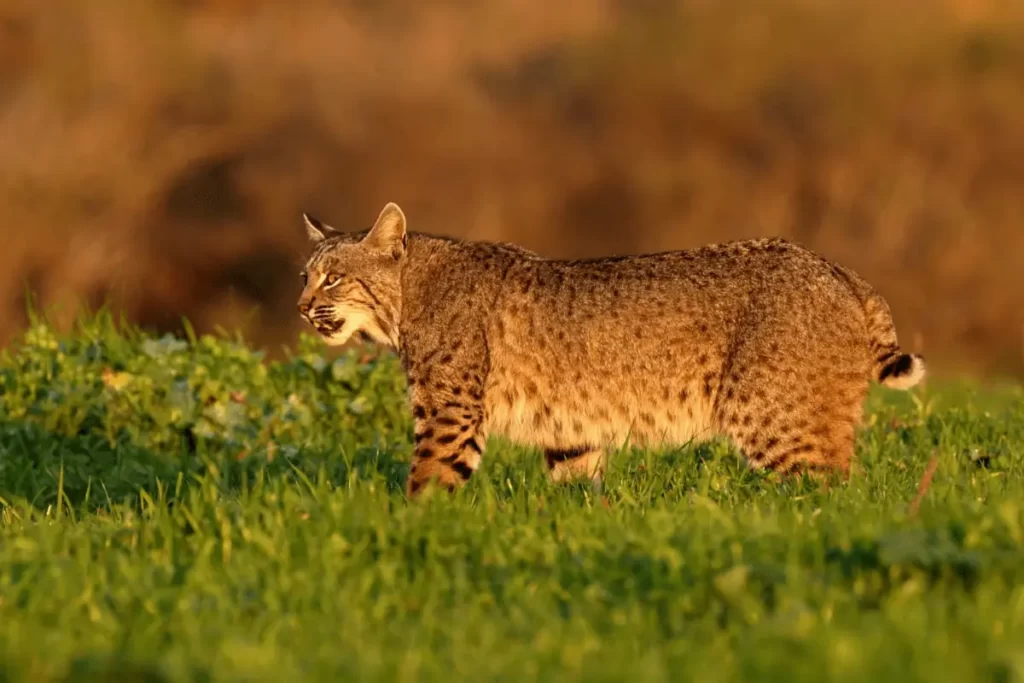
The bobcat is a creature of the dark. It hunts at night and blends in with its surroundings to do so. It is a lonely and adaptable predator that does well in many different ecosystems in North America. They eat a lot of different things, but rabbits are a big part of their diet because they are easy targets for their quick attacks and deadly bites. The only indicators of a bobcat attack are its tracks and signs of fighting.
Stoat (Mustela erminea)
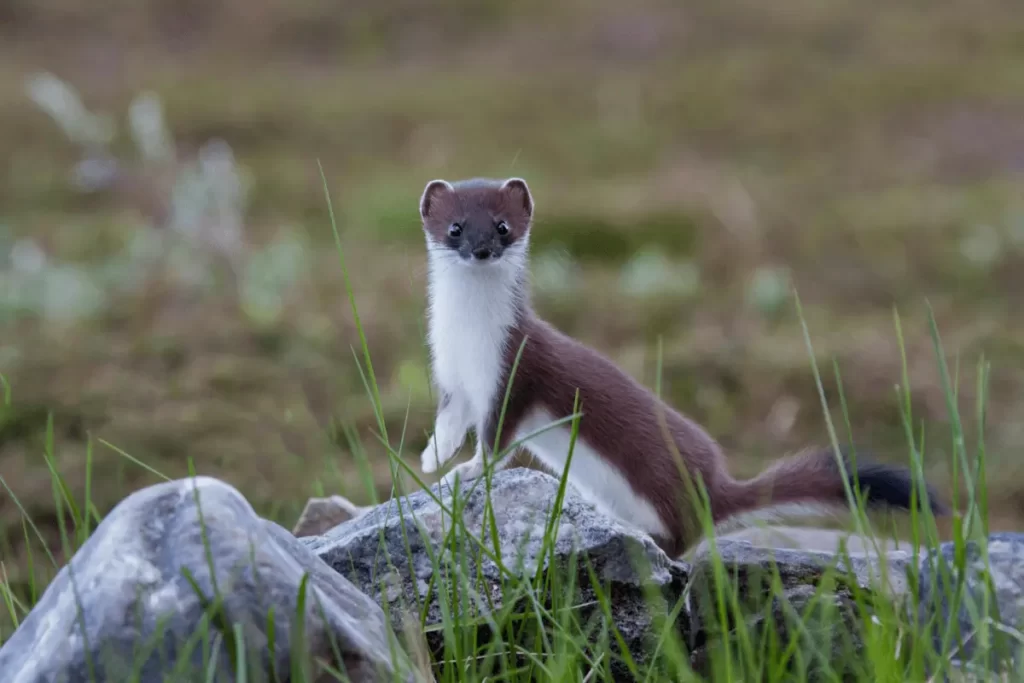
The small but deadly Stoat, also called the short-tailed weasel, is a powerful predator that is often busy at night. The hunters are small and quick, so they can follow rabbits into their dens and kill them with a bite to the neck. Even though they are small, stoats are fierce, and the fact that they can kill animals much bigger than themselves shows how the natural food chain works.
Coyote (Canis latrans)
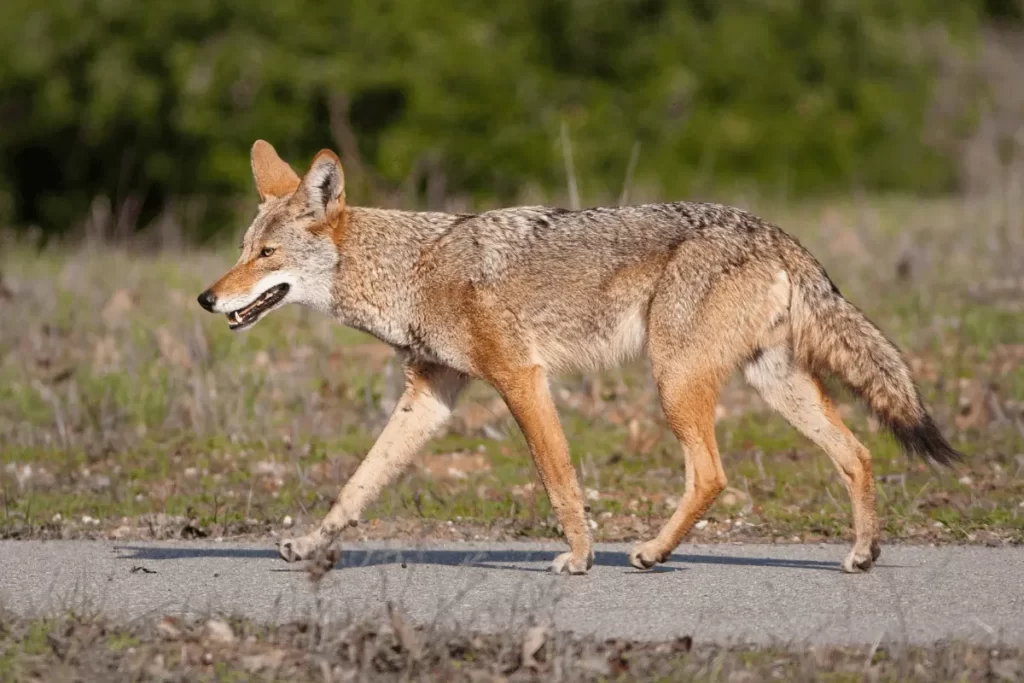
North America’s song dog, the Coyote, hunts at night. The Coyote is good at finding and trapping its prey because nature has given it sharp senses. Since rabbits are fairly common and tend to be active at night, they are often on the Coyote’s plate. This smart and flexible hunter often leaves a mess of dead rabbits behind, a sad sign that it was successful in its hunt.
Striped Skunk (Mephitis mephitis)
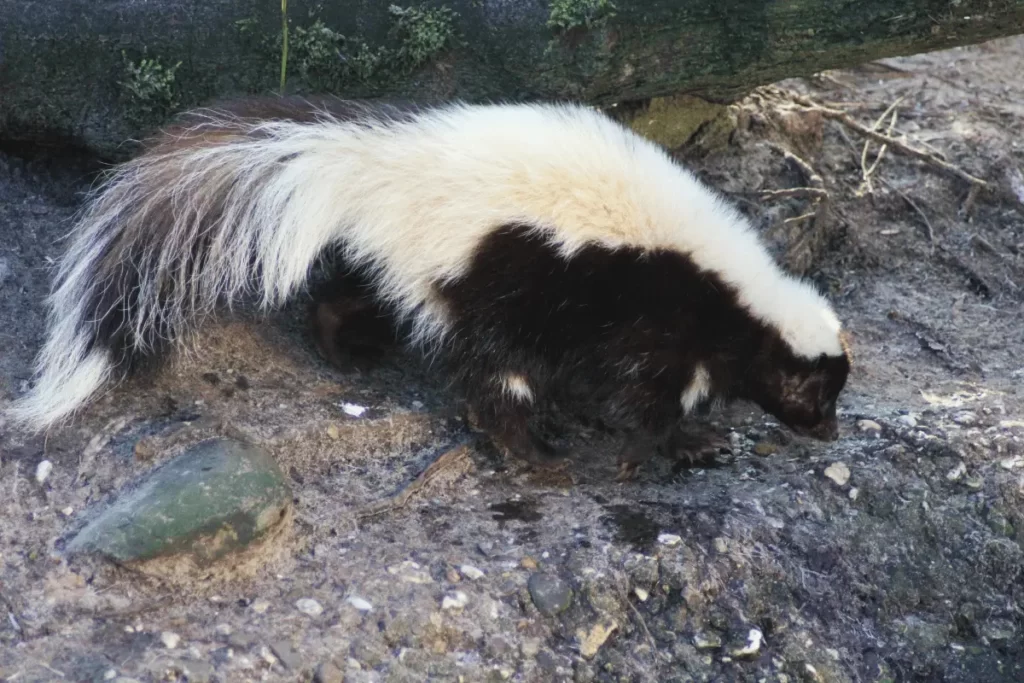
Skunks are known for their smelly spray and their ability to eat anything. However, as night falls, the Striped Skunk transforms into a terrifying rabbit predator. It uses its sharp claws and a good sense of smell to find and dig into burrows, hoping to catch its food off guard. Most of the time, the only sign of its dangerous visit is a burrow that has been messed up and the remains of a rabbit meal.
Badger (Taxidea taxus)
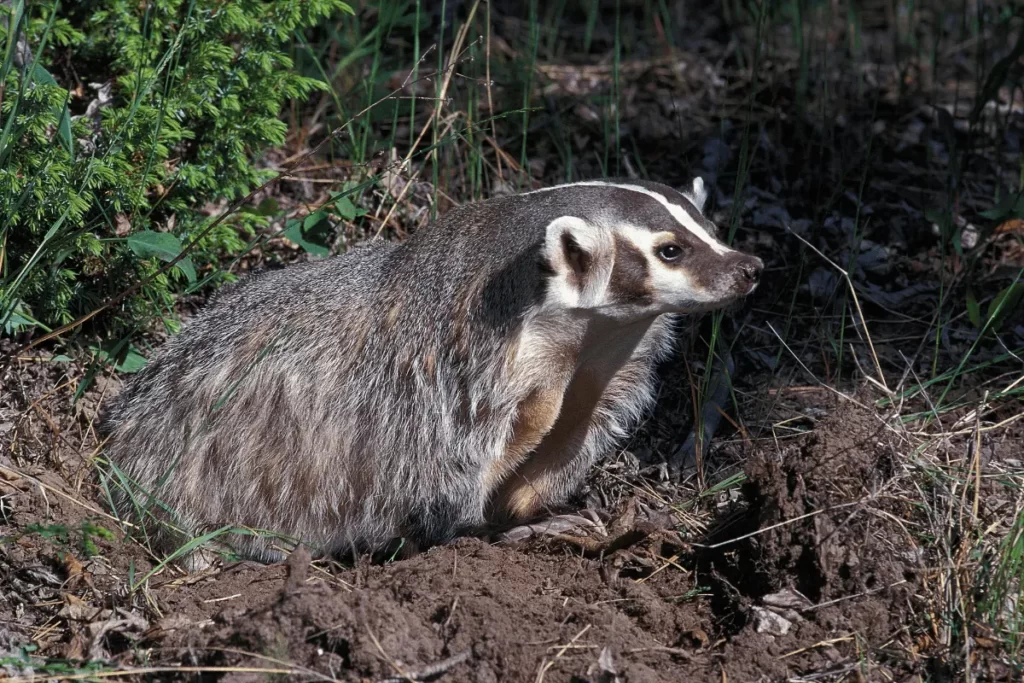
Badgers are good at digging because they are strong and have strong forelimbs. At night, these solitary animals use their digging skills to sneak into rabbit burrows and turn the rabbits’ safe havens into dangerous traps. Badgers eat many different things, but rabbits are their favorite because they are easy to catch and easy to find. Their predation often leaves burrows and scattered remains.
Eagle Owl (Bubo bubo)
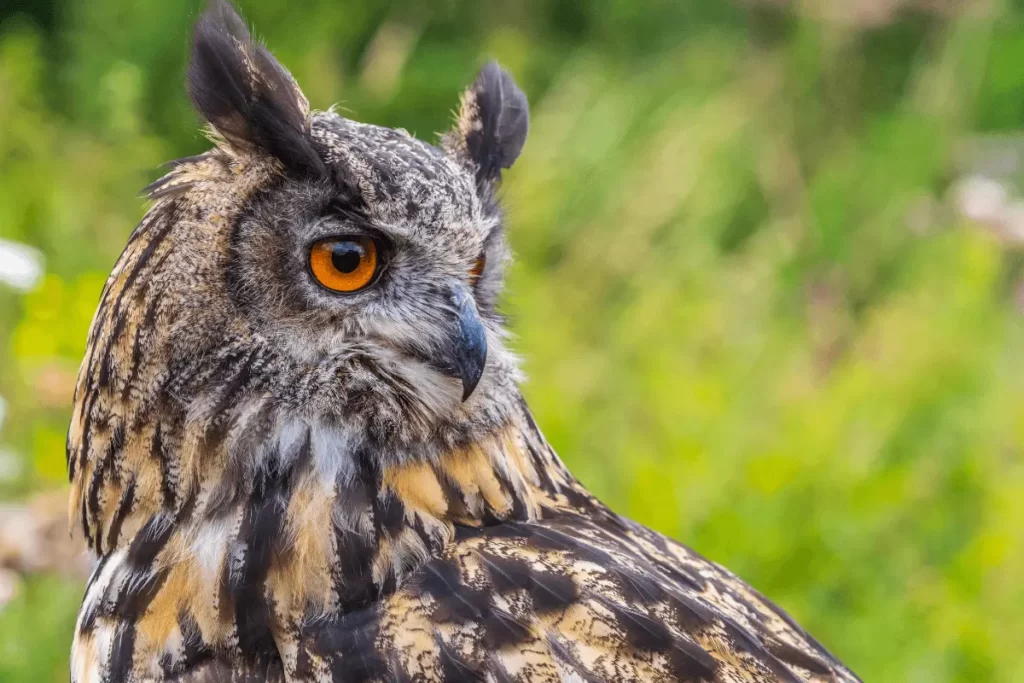
When night falls, the Eagle Owl takes to the sky. Its big, sharp eyes are good at finding movement in the dark. This nocturnal raptor, which is one of the largest owl species, has amazing hunting skills. Rabbits make up a big part of its diet. When the Eagle Owl spots a rabbit, its strong claws hit it quickly and kill it. The rabbit has little chance of getting away once it has been spotted.
Weasel (Mustela nivalis)
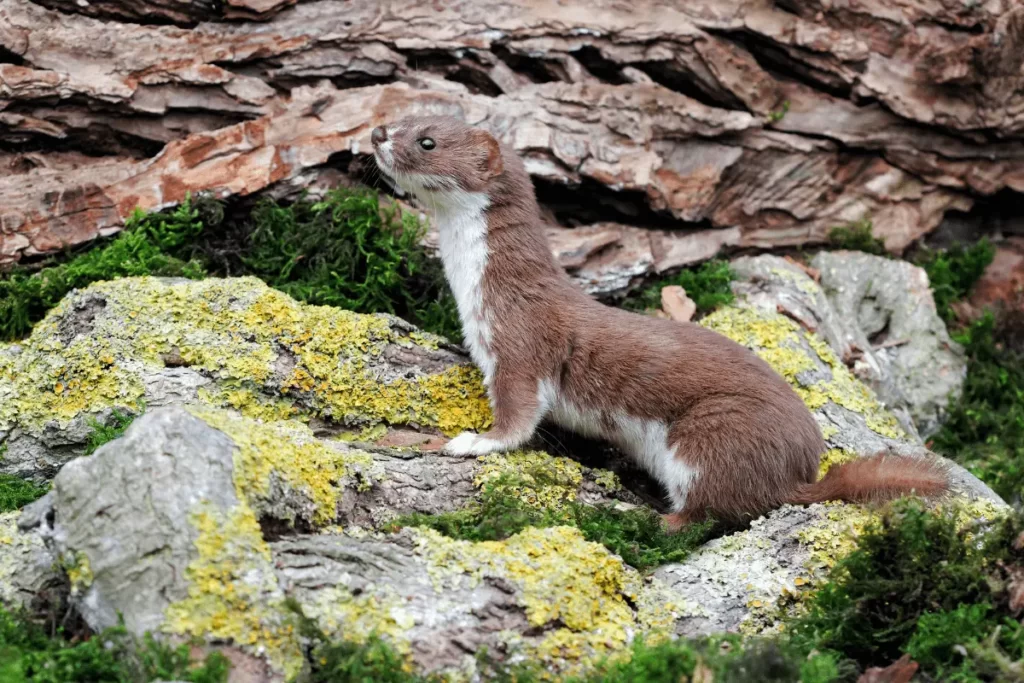
The weasel is one of the smallest animals. As night falls, it comes out to hunt, making the night its hunting ground. With its slim body, the weasel can chase rabbits into their dens and kill them with a bite to the base of the skull. Weasels may kill prey several times their size despite their small size. Their hunts often leave tufts of fur and signs of fighting on the ground.
Conclusion
Rabbits are prey animals that have many predators in the wild. Raccoons are also one of them but the ratio of raccoons eating rabbits is luckily very low as compared to other predators (including coyotes, foxes, and wolves) because raccoons at first go for the food options that are easily available rather than choosing a difficult task to hunt a rabbit.
The natural predator-prey relationship is important for a balanced ecosystem and in the wild, we can’t avoid it. But if you love to keep cute bunnies as pets and may be concerned about predators like raccoons eating your pet, then this article has enough information for you regarding the nature of rabbits and raccoons.
In addition, we have also suggested some easy precautionary measures for you so your pet won’t easily get exposed to predators and you may safely enjoy its company for a longer period.

